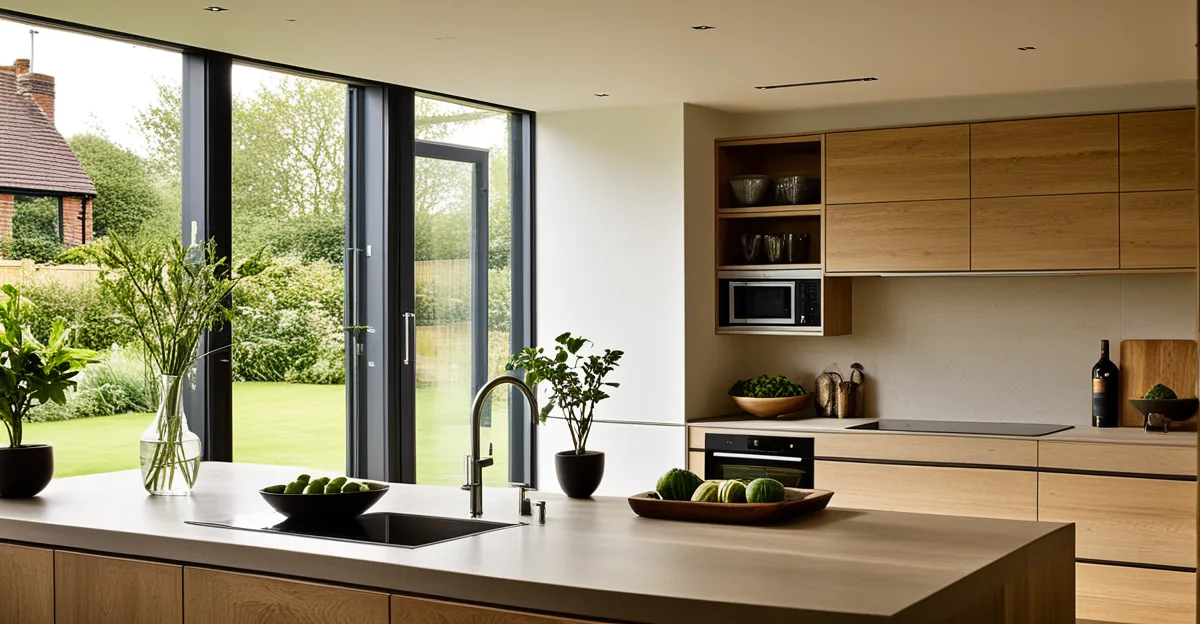Key Drivers Behind Sustainable Living Adoption in UK Homes
Sustainable living in UK households is primarily driven by growing environmental concerns and the tangible impacts of climate change. Many homeowners recognize the urgency of mitigating carbon footprints, motivating shifts toward eco-friendly practices. This awareness fosters a sense of responsibility, pushing more families to embrace energy-efficient measures, waste reduction, and water conservation.
Another key driver is the potential for cost savings. Adopting sustainable practices often reduces utility bills through improved insulation, renewable energy installations, or smart appliances. Additionally, financial incentives provided by government schemes further encourage households to invest in green technologies, making sustainability more accessible and attractive.
In the same genre : How can you incorporate vintage elements into modern UK home design?
Societal values are also evolving, with an increasing preference for eco-conscious lifestyles. This cultural shift supports sustainable living as a social norm rather than an optional choice. The desire to contribute positively to the environment and align with community expectations reinforces these lifestyle changes, promoting wider adoption across different demographics in the UK. This synergy of environmental awareness, economic benefit, and social influence forms the foundation for the growing embrace of sustainable living in homes.
Current Trends and Statistics in Sustainable Living Practices
Sustainable living trends UK show a steady rise in adoption rates among households adopting eco-friendly home practices. Recent statistics highlight notable growth in energy efficiency upgrades, waste reduction efforts, and water conservation measures. For instance, more UK households are installing energy-efficient lighting and appliances, reflecting increased awareness of environmental concerns and personal cost savings.
In parallel : What Are the Unique Challenges of Sustainable Living in UK Homes?
Demographically, younger adults and families are leading in adopting sustainable practices, motivated by climate change impacts and long-term savings. Regional variations exist; urban areas often report higher uptake of renewable energy solutions compared to rural regions, where traditional habits persist longer but are gradually shifting.
Data from recent surveys indicate that approximately 60% of UK households engage in some form of sustainability, such as recycling or using smart meters. This demonstrates that sustainable living practices are becoming mainstream rather than niche. The integration of technology like smart thermostats further supports these eco-friendly habits, enabling precise energy management.
Overall, the upward trend in sustainable living UK adoption rates reflects growing environmental awareness and the practical benefits households recognize. These green lifestyle statistics underscore a promising shift toward more responsible home energy and resource use across the country.
Popular Sustainable Practices in UK Households
UK households increasingly adopt common sustainable practices aimed at reducing environmental impact. A leading trend is the integration of renewable energy solutions such as solar panels and heat pumps. These technologies significantly lower carbon footprints while cutting energy costs. Homeowners often combine them with energy-efficient appliances and improved home insulation to optimize electricity and heating consumption.
Recycling remains a cornerstone of eco-friendly habits, with many households actively participating in waste minimisation programs. Composting organic waste and sorting recyclables help reduce landfill contributions and promote resource reuse. This practical approach aligns with broader sustainable living goals focused on conservation and waste reduction.
Investments in home upgrades reflect a growing awareness of the long-term benefits of sustainability. Installing double-glazed windows, LED lighting, and smart thermostats are common additions that enhance energy efficiency. These combined efforts demonstrate a holistic shift toward UK home sustainability, where environmental concerns meet practical, financially sound solutions.
Societal Attitudes and Cultural Shifts
Public perception sustainability in the UK has evolved significantly, marked by growing acceptance of eco-living as both desirable and necessary. Increasing media coverage and educational campaigns play a central role, raising awareness and shaping attitudes toward sustainable living. These initiatives clarify the practical benefits of green choices, making them more relatable and actionable for UK households.
Community movements and social pressure further accelerate this cultural acceptance. When neighbours or local groups prioritise eco-friendly habits, individual households feel encouraged—and sometimes compelled—to align with these values. This dynamic reinforces sustainability as a social norm rather than a personal preference. For example, participation in communal recycling schemes or local energy cooperatives exemplifies how collective attitudes promote environmental responsibility.
Consumer choices in home products increasingly reflect these shifts. UK households now favour eco-certified appliances, sustainable materials, and low-waste options, showing how public attitudes translate into tangible behavioural changes. Ultimately, this cultural movement strengthens the national green movement, fostering a collaborative approach to tackling climate change and supporting sustainable living practices across the UK.
Government Policies and Real-Life Case Studies
UK government sustainable policies play a pivotal role in accelerating the adoption of eco-friendly home practices. Various home improvement grants and subsidies help reduce upfront costs for installing energy-efficient measures such as insulation, solar panels, and heat pumps. These incentives directly address one of the main barriers to sustainable living—initial investment—making green technologies more accessible to UK households. For example, schemes like the Energy Company Obligation (ECO) offer financial support for upgrading heating systems and insulation, encouraging homeowners to reduce carbon emissions while lowering energy bills.
Real-life sustainability case studies UK highlight how households successfully implement these changes. Many report substantial savings on utility costs and improved home comfort after upgrades. However, challenges such as navigating application processes or initial disruption during installation are common. These case studies offer valuable insights, illustrating practical steps and strategies that prospective adopters can follow.
By combining government policies with real-world examples, the UK reinforces sustainable living as an achievable, cost-effective lifestyle choice. This synergy creates a supportive environment that encourages widespread adoption of green home improvements.


